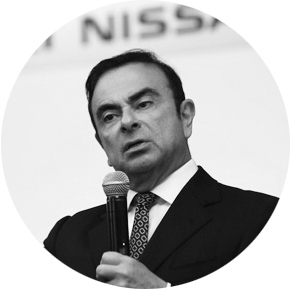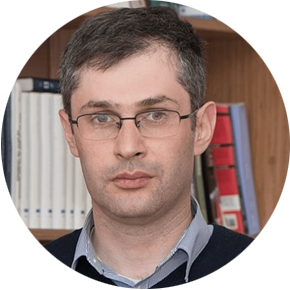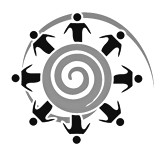Mediamax’s exclusive interview with Carlos Ghosn, Chief Executive of Renault, Nissan and Renault-Nissan Alliance
One of the most popular top-managers in the world, President and CEO of Renault and Nissan, Head of the Renault-Nissan Alliance Carlos Ghosn was in Armenia last weekend by the invitation of businessman and philanthropist Ruben Vardanyan.
Lebanese Carlos Ghosn born in Brazil became famous for orchestrating one of the most aggressive downsizing campaigns allowing to lead Nissan out of the deep crisis it used to face.
Carlos Ghosn paid a visit to Dilijan, visited the monastic complexes of Haghartsin and Geghard, Garni Temple, Matenadaran, Cafesjian Center for the Arts and Yerevan Brandy Company.
Before leaving Armenia, Carlos Ghosn kindly agreed to answer Mediamax’s questions.
- You spent 2 days in Armenia: what are your impressions?
- This is a private visit on my way to Japan. It has been a while since I wanted to visit Armenia and this was a great occasion as I was invited by my friend Ruben Vardanyan.
As you know, I am of Lebanese origin - there is a strong Armenian community in Lebanon and I was already familiar with the Armenian food, habits and the language. I also have a lot of Armenian friends in many countries. But this was my first visit to the country and my impressions were very different from what I was expecting.
- Could you explain why?
- First, the city of Yerevan is much more modern than I was expecting. I visited the downtown thoroughly, including the Republic Square area and the museums area. The Cafesjian Museum is really very nice. I was also looking at all the buildings, nice apartments, coffee shops and the restaurants. And there are a lot of young people. So the city is much more vibrant than I used to think.
The second element I was much surprised by is the diversity. We went to Dilijan and there is a moment when you enter the tunnel and after it the landscape completely changes and you find yourself in practically a different country.
The third element, which I already knew and suspected, is the involvement of the Armenian Diaspora in the development of the country. I have sensed the fact there is a lot of care to try to train and support the new Armenian generation, so it can be up to the task of the challenge of the development of the country and the economy. I saw impressive proejcts realized in Armenia by Diaspora representatives.
So overall, it’s a very good impression because I didn’t know anything about Armenia, except for what I had been told by my Armenian friends.
-You have visited UWC Dilijan College established thanks to Ruben Vardanyan and Veronika Zonabend and their friends and partners. What do you think about that school, and its prospects?
- I am amazed by the concept - bringing young talents from all over the world and educating them in such a good system where they can exchange within themselves. The very high level of academics and the environment which is really privileged are also stunning.
It’s a great idea to do it here, because Armenia doesn’t have too many natural resources. Its main resources are human resources and education is a basic quality of the country. Everything which can create benchmarks in terms of education and can bring the international community to get more interested in Armenia is good.
- Some people say there are a lot of similarities between Armenia and Lebanon. Complicated neighborhood and geopolitical difficulties are listed among them. Do you see any similarities?
- Yes, there are some similarities, and there are also some differences.
The first similarity is the Diaspora. It’s one of the strengths of both Armenia and Lebanon. There are much more Lebanese people living outside Lebanon, and I think the same is observed in Armenia. I was told there are eight to nine million Armenians and only three million of them live in Armenia. Lebanon has four million Lebanese inside Lebanon and probably 15-16 million Lebanese outside the country. These people are the main support for the economy, because they are investing in the country, buying houses and lands.
The second communality is the long history. Armenia has a long history, it’s a very old country, a very old civilization and many Armenians can go back thousands of years and tell you about the story of their country. It’s the same thing in case of Lebanon. These are old countries with a lot of historic happenings - some of them tragic, some of them positive, and it also helps in search for the character of a nation.
- Ruben Vardanyan has been saying that people are the main asset in the 21st century. Do you agree with that? How would you exploit this asset?
- It’s obvious. You don’t have oil, you don’t have huge agriculture, and you don’t have sea. Your main asset is your people. Armenian people are known all over the world in arts, in craftsmanship, in science, etc. How to exploit this? Well, the first thing is education. Not only schools and universities but also the benchmark of the education needs to go up. The second is training. Education is not enough; you also need to have on the job training and standards in terms of servicing people whatever you are in - hotels, tourism, etc. I would say the main is education and training, and this should be an international benchmark, because Armenia has this huge opportunity to open to the world through its Diaspora.
Ara Tadevosyan talked to Carlos Ghosn



























Comments
Dear visitors, You can place your opinion on the material using your Facebook account. Please, be polite and follow our simple rules: you are not allowed to make off - topic comments, place advertisements, use abusive and filthy language. The editorial staff reserves the right to moderate and delete comments in case of breach of the rules.